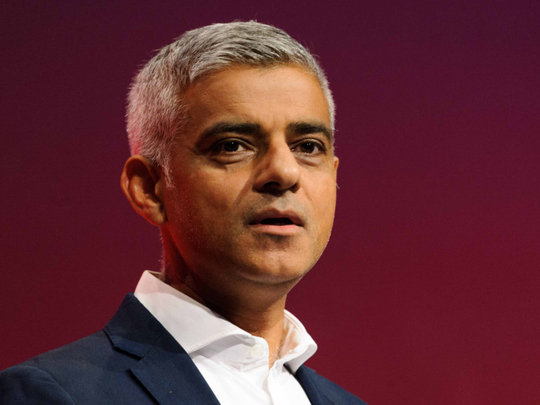
Time is fast running out for the government of United Kingdom to secure a good deal from the Brexit negotiations that protects jobs, growth and living standards for future generations.
A final deal has to be agreed by October this year at the very latest, so that it can be ratified by all 27 European Union (EU) member-states before the March 2019 deadline for Article 50 — the point at which Britain leaves the EU.
That leaves less than 10 months to finalise the vast outstanding exit-related issues that were simply fudged at the end of last year. The most challenging of these are: A viable solution for the Irish border; agreeing to the full details of a comprehensive transitional deal; establishing the detailed principles of our future trading relationship, which the EU has consistently said must be agreed upon before a final deal is signed; and for the British parliament to vote to approve the deal.
This could — just — be achievable by a strong and stable government that is united behind a clear strategy and negotiating position, and determined to reach a deal that works in the best interest of both Britain and the rest of the EU.
Depressingly, our current government is anything but that. Ministers simply cannot agree on their desired outcome — weakened by last summer’s general election result, torn between the extreme views of the Tory Right and economic reality. Ministers still contradict each other on consecutive days, infuriating the EU and making the complicated negotiations even harder. And it looks increasingly like they are willing to put the interests of the Tory party ahead of the national interest.
The stakes couldn’t be higher. Last week, I released independent economic analysis of the potential impact of different Brexit outcomes on both London and the UK’s economy. I commissioned and published this analysis because the government has either refused to do it, or worse, is keeping it secret. Either is a terrible way to govern. The British public deserves to know the potential impacts of all the possible options.
While there are other factors we cannot accurately forecast, this analysis clearly demonstrates that the harder the Brexit outcome we end up with, the worse the potential impact on jobs, growth and living standards could be.
A “no-deal” hard Brexit could lead to a lost decade with significantly lower growth, the job market being cut by 500,000 posts and nearly £50 billion (Dh252.5 billion) less investment by 2030 than would be the case if we remained in the single market and customs union.
In London, there could be 87,000 fewer jobs and the capital’s economic output could be 2 per cent lower by 2030 than predicted under the status quo. That would mean fewer opportunities for the next generation and poorer living standards than would otherwise be the case — a huge human cost to pay.
Perhaps most worryingly for Britain’s future, it also shows that the rest of the UK is set to suffer significantly more than London. The independent study concluded that by 2030, economic output across the rest of the UK would be on an average between 3 per cent and 3.3 per cent lower compared with between 1.9 per cent and 2.1 per cent down in London. That means that geographic inequalities across the UK would widen even further, rather than narrowing.
These inequalities — and the feeling that “only wealthy bankers in London” benefit from the EU — was one of the contributory factors behind the EU referendum result. People in Birmingham, Cornwall, Norwich, Leeds and elsewhere deserve to know that, rather than narrowing the gap, opportunities in their communities are set to fall even further behind London as a direct result of a hard Brexit.
The impact of a “no-deal” or “cliff-edge” Brexit is so much more severe than any other potential outcome that it must be avoided at all costs. However, the government’s chaotic approach to the negotiations and unhelpful posturing about “being willing to walk away” means it is still a very real threat.
So I am calling on the government to commission and then publish — in full — their analysis of every single option available for Britain to avoid a “cliff-edge” scenario. That means their analysis should look at what we should do if we are unable to secure a good deal from the negotiations, if the negotiations collapse, or if the final deal fails to be ratified by either the British parliament, European parliament or a number of EU member-states.
This must include all options for extending the Article 50 timeline. It must include all options for an extended interim deal — beyond the two-year period currently on the table. And it must include legal analysis of the options available for withdrawing Article 50 altogether in the worst-case scenario of the UK crashing out of the EU with no deal. There are differing opinions on whether this is possible — Lord Kerr, the author of Article 50 , says it is. The government must tell us what they think and what our options truly are.
Despite the doom and gloom, there still remains a clear path for the government to protect jobs and growth for future generations: Prioritising a deal that keeps Britain in the single market and customs union in the long term. They must change paths before it’s too late.
— Guardian News & Media Ltd








